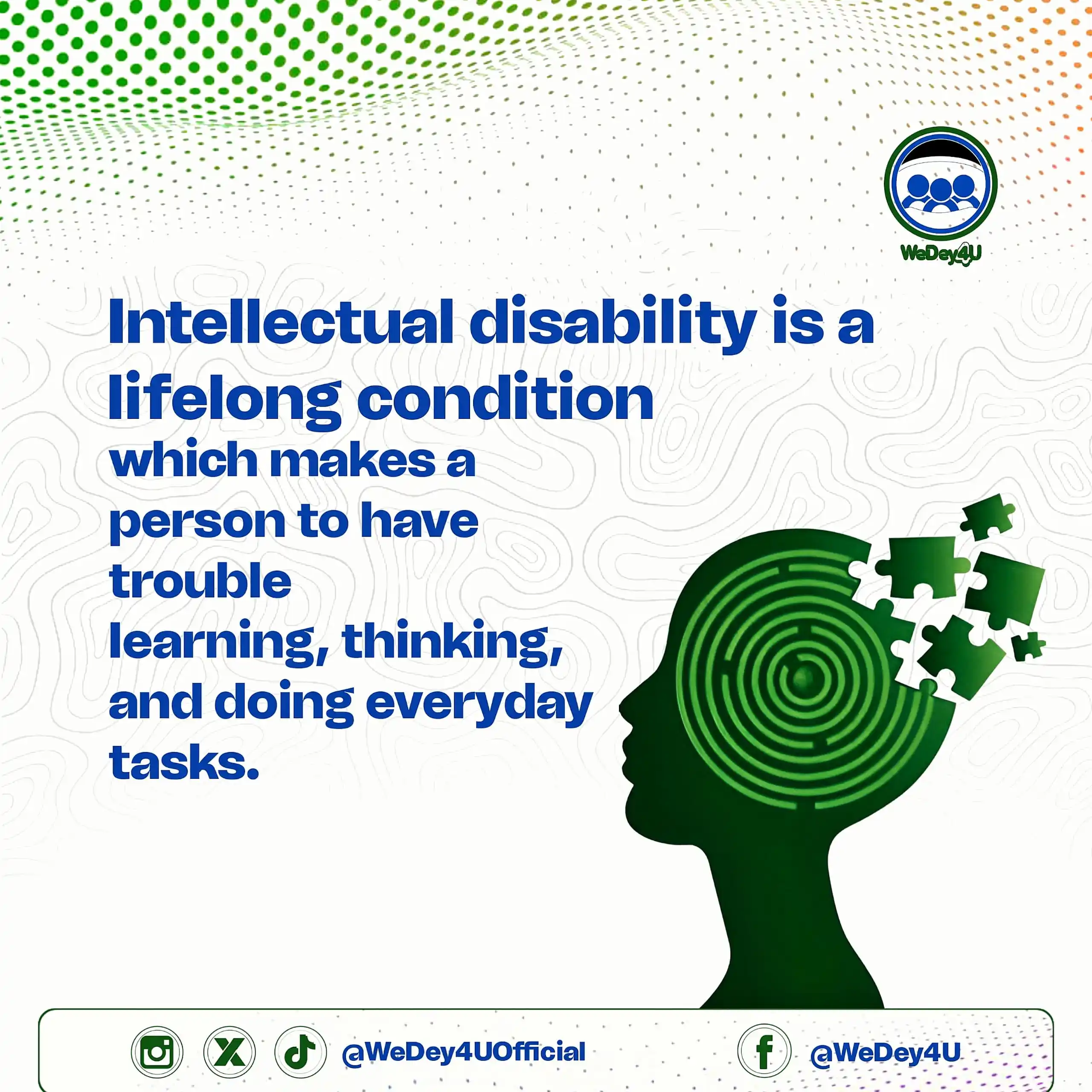
WeDey4U 💚
February 17, 2025 at 05:14 PM
Intellectual disability is a lifelong condition that makes a person have trouble learning, thinking, and doing everyday tasks. This starts before adulthood and affects how people solve problems, understand things, and take care of themselves. The impact varies depending on the severity, support system, and the individual's strengths.
The signs and symptoms of intellectual disability vary depending on the severity but generally involve difficulties with thinking, learning, communication, and daily living skills.
The severity of intellectual disability is classified into four levels based on Intelligence Quotient (a measure of a person’s cognitive ability, or how well they can think, learn, and solve problems) scores and adaptive functioning which are:
1. Mild (IQ 50–70) – Can learn basic skills, work simple jobs, and live mostly on their own with some help.
2. Moderate (IQ 35–50) – Needs some support with daily tasks but can learn important skills.
3. Severe (IQ 20–35) – Requires close supervision and assistance with daily activities.
4. Profound (IQ below 20) – Has significant cognitive and physical impairments, requires constant care.
Intellectual disability is diagnosed when someone has an IQ below 70 and also struggles with daily life skills.
WeDey4U 💚

💚
1